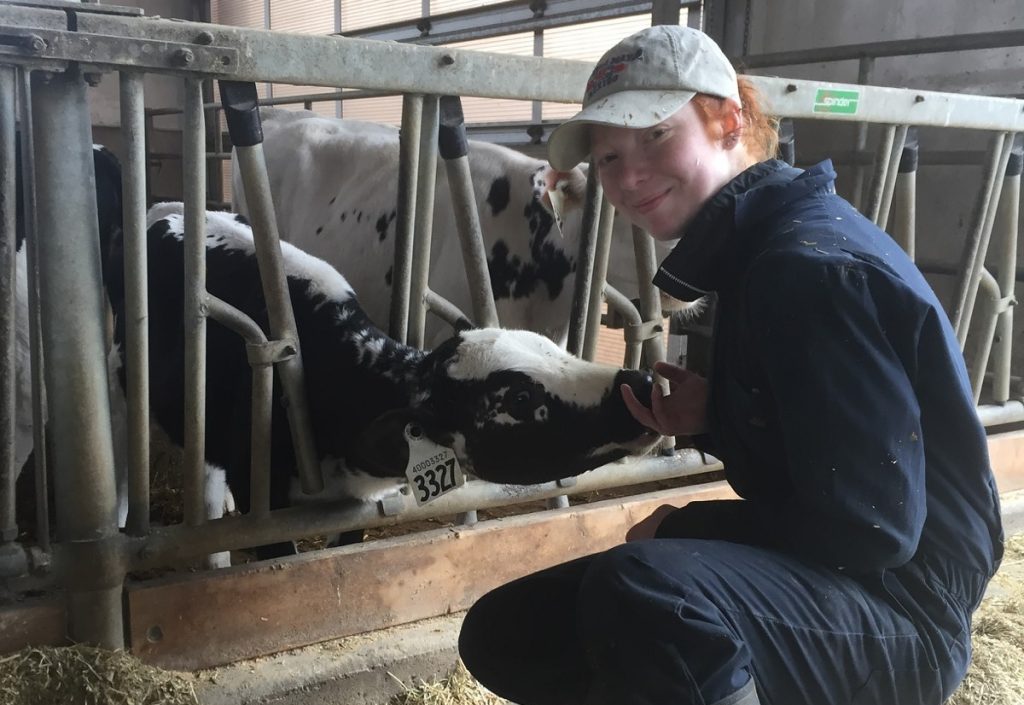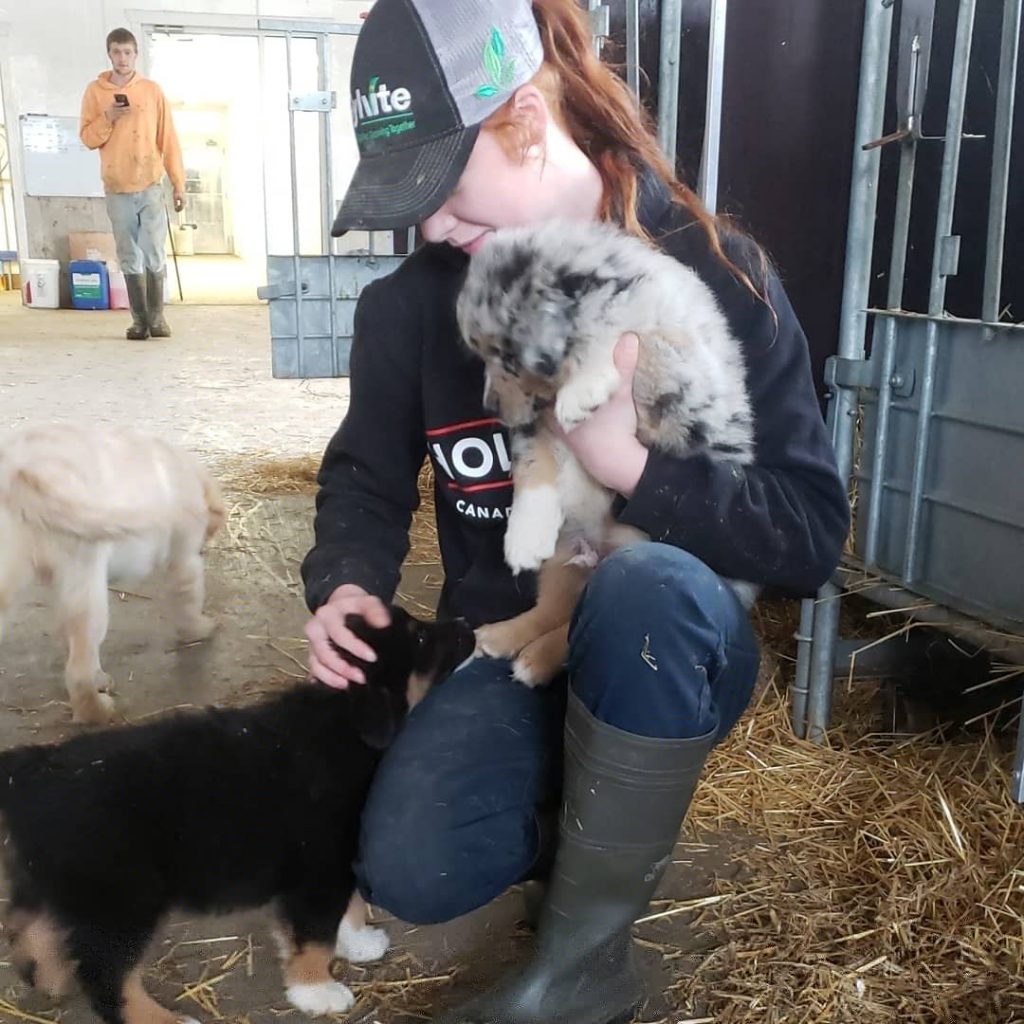Childhood Cancer Awareness Month Survivor Spotlight: Caitlin Timmins

As Childhood Cancer Awareness Month comes to a close, SavvyMom is highlighting Caitlin, who has been diagnosed with three different cancers since the age of nine. This is her story.
Three days before her 10th birthday, Caitlin Timmins’ parents learned their young daughter had colon cancer. Colorectal cancers are nearly unheard of in children, with only three cases in every 15 million kids.[i]
“They kept it from me because they didn’t want to ruin my birthday,” said Caitlin, now 18, of Woodstock, Ontario. Several days later, Caitlin underwent surgery to remove her large intestines. After six months of a modified chemotherapy regimen, she was able to return to school.
Caitlin’s cancer journey was far from over. Two short years later, her cancer had returned—only this time, it was in her pancreas. Over the next 18 months, Caitlin underwent a different chemotherapy treatment program, as well as several additional surgeries to remove parts of multiple organs. Initially, her treatment plan seemed to be working—but over time, Caitlin got sicker. Her medical team then found the cancer had returned for a third time, now appearing on her cervix. Caitlin’s extreme cancer experiences led doctors to believe that she had a very rare cancer syndrome, which made her body resistant to cancer treatments available at the time.
“After the third diagnosis, we got pretty much told that there’s no way chemo would be working again,” said Wil Timmins, Caitlin’s father. “When we heard that, we knew this could be the end.”
Then, Caitlin’s doctors brought her case to the doctors at SickKids in Toronto, and her medical team found a clinical trial supported by Stand Up To Cancer (SU2C). This offered the Timmins family a glimmer of hope, but Caitlin, who had spent years in a hospital, was skeptical.
“I wanted to give up right before I started this trial, and sort of into the first couple months of it,” said Caitlin. “I didn’t really see a point in doing it.”
Three months into the clinical trial, an MRI found Caitlin’s tumor had shrunk—and Caitlin started to believe that maybe her treatment was worth it. She underwent surgery yet again, and continued treatment every other week until she reached the two-year mark. As her treatment proved successful, Caitlin could picture prom and graduation with her friends, and more things to look forward to.

Today, Caitlin continues to be monitored and has no evidence of disease. She has graduated from high school cancer-free and is pursuing her dream of becoming a dairy farmer in her hometown of Woodstock. The researchers who conducted the clinical trial that saved Caitlin have received additional funding from Stand Up To Cancer to advance the next phase of studies testing promising therapies in children with hypermutant cancers.
Stand Up To Cancer’s (SU2C) mission is to raise funds to accelerate the pace of groundbreaking translational research that can get new therapies to patients quickly and save lives now. By galvanizing the entertainment industry, SU2C has set out to generate awareness, educate the public on cancer prevention, and help more people diagnosed with cancer become long-term survivors.
The SU2C movement began in 2008, mandating collaboration among the cancer community, with its revolutionary “Dream Team” concept, uniting top researchers from different institutions to work together on promising new approaches and compete against cancer instead of against each other. SU2C Canada launched in 2014 and to date has funded three pan-Canadian Dream Teams. SU2C Dream Team grants provide essential funding to bring science concepts from the laboratory to patients. SU2C issues “calls for ideas” seeking the best science to address major questions in cancer. Teams are selected through a rigorous process involving blue-ribbon panels of leaders in cancer research from the US and Canada. SU2C grants are awarded to teams with the greatest potential to help patients in the four-year funding cycle.
With the help of people across the United States and Canada as well as corporate, philanthropic, and organizational donors, over $603 million (USD) has been pledged to date to support SU2C’s portfolio of innovative cancer research.
The impact of SU2C is much greater than support for more than 100 team grants, engaging 1600 researchers across more than 180 institutions. Our research focuses on specific cancers, such as pediatric, breast, prostate, lung, and pancreatic cancers and on broad approaches to treat and diagnose cancer. SU2C Catalyst® brings together funding and drugs from pharmaceutical companies to accelerate clinical trials including the trial which saved Caitlin. SU2C has also provided significant funding for the science of immunotherapy, in which the body’s own immune system is engaged to fight cancers; and has helped develop technologies using blood tests to identify cancers early; imaging technology to understand how cancer progresses; and “tumour organoids,” mini tumours grown in the laboratory, to determine which treatments will work best for specific patients’ tumours, an approach called targeted or precision treatment, as well as other innovative approaches.
SU2C research has contributed to the development of six new cancer therapies approved by the US Food and Drug Administration (FDA), including two new treatments for difficult to treat pediatric leukemias.
SU2C research also supported new treatments for breast cancer, ovarian and pancreatic cancers leading to FDA approval. Additional new treatments continue to undergo FDA review with promising results for colon, lung, and ovarian cancers and for metastatic melanoma.
For more information on pediatric cancers, visit StandUpToCancer.org. 100% of public donations to Stand Up To Cancer Canada support innovative, collaborative research and education and awareness in Canada To donate, visit StandUpToCancer.ca
[i] https://www.verywellhealth.com/colorectal-cancer-in-children-796670














